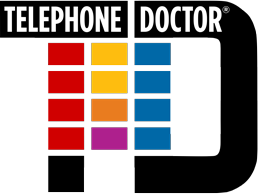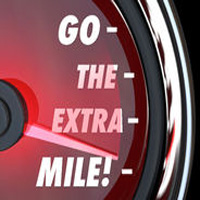An Interview with Nancy Friedman, Keynote speaker.
By Ed Attanasio Auto body News
Nancy Friedman is known throughout the country as the Telephone Doctor, but she is also a keynote speaker for large automotive companies and a customer service consultant for big corporations. She takes businesses of all sizes that are dropping the ball when it comes to basic customer service and turns them into thoroughbreds by following her simple directives. Her passion to help small business is second only to the knowledge she brings on her topics. Automotive clients include being a 2 x keynote speaker at CARSTAR, seven-city tour with BIG O TIRES, programs with Christian Brothers Automotive, Tuffy, CarX, Grease Monkey, Goodyear, Tire Pro, Midas, and many other well respected automotive firms around the country.
We sat down with the Nancy recently to discuss customer service in the collision repair industry and ask her why so many shops are ailing and need a little CSI therapy.
Q: How can a company and its employees turn bad customer service into great customer service?
Nancy: It takes practice like anything else. But if your shop can embrace an atmosphere where the customer is #1 without exception, it will quickly become part of the culture and ingrained in your company. But they have to buy into it and you have to create an environment encourages and rewards good customer service.
Q: One of your cardinal rules of customer service is called People Before Paperwork. Can you elaborate?
Nancy: As we all know in the collision industry, the insurance companies started insisting that the shops do the lion’s share of the paperwork required with every repair. This has added 2-10 more hours to the process on each and every car, depending on whom you talk to. Now, this deluge of paperwork can be a problem for employees who aren’t adept at multi-tasking.
“I wanted to deal with the customer but I felt as though I needed to finish the paperwork on this other job first,” I’ve heard many times. Well, that’s a big mistake. Multi-tasking is part of the job and it’s unacceptable to ever make a client wait due to paperwork.
“Sorry, this paperwork has to go out right now.” Another mistake. You’ve just told the customer that you’re not a priority. If you’re under the gun with a looming deadline, how is that the customer’s concern? In the corporate world, they call it “job shifting” and it’s something I teach people how to avoid.
When someone walks into your place of business, or calls you while you’re working on something, drop everything for that person. Remember, paperwork can wait, people should not. We’ve all been abused when we go shopping and get ignored by clerks, so we know how that feels. Let’s not abuse our own customers and live by this simple rule: People Before Paperwork.
Q: In a busy body shop environment, some estimators and other office people make mistakes by rushing. Plus, they make the customers feeling uneasy, with all of the rushing around. How do you teach people to stay calm even when they’re overloaded?
Nancy: It’s human nature. We rush when we’re busy and that’s when we make mistakes. By being short with customers or rushing them through the process, even if you do a good job, they will be left feeling intimidated and you won’t see them coming back. Take it easy. Remember, speed is not success! Trying to be “done” with a customer as quickly as possible is seen as being rude and uncaring. Take your time with each and every contact. Hey, everyone’s busy! That’s what it’s all about. Being busy does not give you carte blanche to be rude. Remember, you meet the same people coming down, as you do going up. They’ll remember you. (What’s worse than being busy? NOT being busy.)
Q: Another problem is when body shop people talk to customers using industry terms that they can’t possibly understand.
Nancy: Ever get a report from a company and not understand it? Some companies have jargon that makes the CIA wonder what’s up. Granted, today’s customers are much more savvy about cars and collision repair, but focus groups prove that most of your clients don’t know what severity is or the difference between an OE and an aftermarket part. So, always be very careful not to use your own company jargon on your customers. You and your employees may understand it very well, but the customer may not. And you’ll only cause a lot of unnecessary confusion. Spell things out for your customers. Don’t abbreviate. Remember, don’t use collision industry language on civilians, because in most cases, it will only confuse them.
Q: And whatever happened to all of the little things that used to go such a long way when it came to customer service?
Nancy : It’s so true! We need to remember that ‘Thank you’ and ‘You’re welcome’ are beautiful words. The customer cannot hear them too often. However, if you’re telling your customers to “have a nice day,” please say it with meaning! I recently had a checkout clerk tell the floor to have a nice day. She wouldn’t look at me. Make eye contact when you’re saying something nice. Also, smiling goes a long way and can really make a customer comfortable quickly. Lead with a smile and you can’t go wrong and you’ll stand out from all of the frowners out there too. It will also earn you many classic customer service points as a result. The customer needs to know that you want to work with them, no matter who they are, so smile and be friendly with everybody through the door and you can’t go wrong.
# # #
Ed Attanasio is an Editorial Contributor for Autobody News, a monthly magazine that covers the collision repair industry with five editions published nationwide. Ed lives in the San Francisco area.

